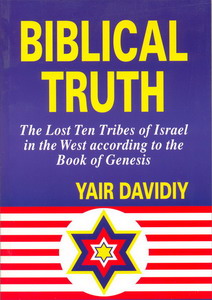|
"Shoshana Yaacov" |
|
"Shoshana Yaacov" |
|
Brit-Am Discussion Group |
Contents by Subject |
Research Revelation Reconciliation Contribute |
Site Map Contents in Alphabetical Order |
This Site |
|

|
The Lost Ten Tribes of Israel according to the Book of Genesis Biblical Prophecy Predicted that the Lost Tribes of Israel would be found amongst Western Nations. Biblical Verses analysed in the light of the Hebrew language, Rabbinical Commentary, and Historical Reality. A valuable educational, inspirational, and enjoyable work |
##The fate of the Ten Tribes was also discussed by the sages of the Mishnah and the Talmud. Opinions differed - Rabbi Akiba believed that the Ten Tribes would not return, and Rabbi Eliezer argued that the Ten Tribes would (Mishnah, Sanhedrin 10:3; Shabbat 147b; Numbers Rabba 9:7). ##Brit-Am Correction:
##Perhaps the best example of traditions upholding beliefs of an origin from the Ten Lost Tribes can be found among the Jews of Ethiopia. The Beta Israel community of Ethiopia regarded themselves as descendants from the tribe of Dan. It should be pointed out that when Rabbi Ovadiah Yossef, the Sephardi Chief Rabbi of Israel, recognized the Jewishness of the Jews of Ethiopia in 1973, he too emphasized that they were descendants of the lost tribe of Dan. ##Brit-Am Correction:
| PREVIOUS ISSUES |